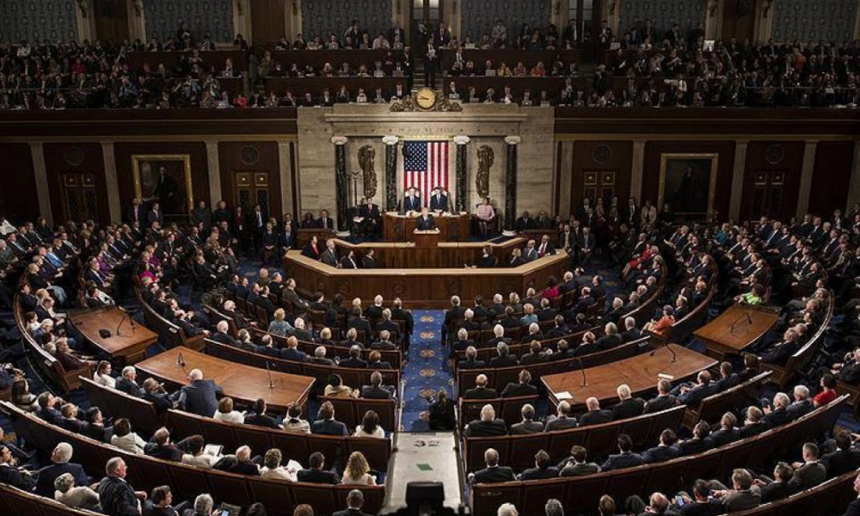RASC News Agency: As tensions escalate in the Middle East and former President Donald Trump signals openness to military involvement on behalf of Israel, a bipartisan coalition of U.S. lawmakers has moved swiftly to prevent unauthorized American entry into a potential war with Iran. In an unusual display of cross-party alignment, Republican Congressman Thomas Massie introduced a resolution in the House of Representatives on Tuesday that would bar the U.S. military from engaging in hostilities against Iran without explicit congressional authorization. Simultaneously, Democratic Senator Tim Kaine submitted a parallel version of the resolution to the Senate.
“This is not our war,” Massie wrote bluntly on the social platform X (formerly Twitter). “And even if it becomes our concern, the U.S. Constitution is clear only Congress has the authority to declare war.” Prominent progressive Democrats, including Representatives Ilhan Omar and Alexandria Ocasio-Cortez, have voiced strong support for the resolution. Massie’s office confirmed that additional backing has come from Congressman Greg Casar, chair of a key progressive caucus, along with a growing number of Democratic and Republican members uneasy with Trump’s foreign policy signals.
The legislative move came within hours of Trump’s abrupt departure from the G7 summit in Canada, where he had reportedly urged fellow world leaders to support what he called Iran’s “unconditional surrender” following Israel’s airstrikes on Iranian nuclear facilities. Despite reassurances from White House Press Secretary Alex Pfeiffer that American forces remain “on a defensive posture” and will not engage directly, reports indicate that U.S. naval strike groups and fighter aircraft have already been deployed to the region raising alarm about possible military entanglement. According to Axios, discussions at a recent National Security Council meeting chaired by Trump reportedly included the possibility of active U.S. military coordination with Israel. In a significant shift, Trump has also scrapped plans to send a diplomatic delegation to Tehran to resume stalled nuclear negotiations.
These developments stand in stark contrast to Trump’s campaign promise to extricate the U.S. from what he described as “endless foreign wars.” Yet, within his own camp, a rift appears to be widening between hawks pushing for military confrontation with Iran and isolationists warning against embroiling the country in another Middle Eastern conflict. Democratic Congressman Ro Khanna, a leading advocate of the resolution, cautioned that obstructing the measure could trigger political backlash, particularly among conservative voters. “This is a moment for Democrats to reclaim our identity as the anti-war party,” Khanna said. “We must hold Trump accountable to his own pledge to avoid unnecessary wars.” However, the Republican response has not been uniform. Far-right Representative Marjorie Taylor Greene, a vocal critic of foreign regime change operations, told The Guardian she currently does not support Massie’s resolution despite her opposition to American involvement in a war between Israel and Iran.
“I’m against foreign wars and against regime change. I trust President Trump to guide this crisis toward peace without starting another war,” she said. “If circumstances change, I may reconsider. But for now, we need to wait and see.” While the twin resolutions have yet to face formal floor votes, internal divisions in both parties and within the broader Republican leadership suggest a contentious path ahead. Senior GOP figures reportedly aim to suppress the growing momentum behind the effort, fearing it may undercut Trump’s leverage abroad. Amid the high-stakes political maneuvering, one thing remains clear: the specter of war with Iran has reignited a fierce debate in Washington over the limits of presidential war powers, and whether the lessons of previous U.S. military interventions have truly been absorbed.






